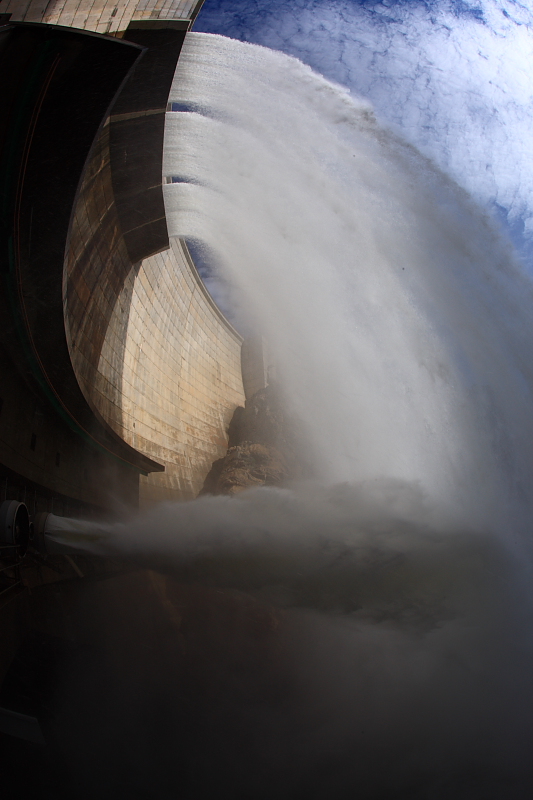dams
-
Three Gorges Dam has serious issues, China admits
When a country commits to any project as monstrous as China's Three Gorges Dam, it is bound to encounter occasional difficulties. The Chinese government, as governments are wont to do, has preferred to gloss over the dam's detriments and emphasize its attributes, like the 84 billion kilowatt hours of electricity it produced last year. But […]
-
U.S. infrastructure needs a $2 trillion make-over
Like those bridges and roads and trains tracks you've got there? Want to keep them? That'll be $2 trillion. That's how much the Urban Land Institute estimates the U.S. needs to invest in infrastructure just to keep what's already in place from falling apart. Everybody else in the world gets this. In Europe, countries realize […]
-
Critical List: Fracking connected to flammable tap water; eco-friendly paintballs
Remember those people with flammable tap water? Yup, hydrofracking is responsible, according to Duke University scientists. Chile wants to dam two incredible rivers, despite opposition from both locals and Robert F. Kennedy, Jr. A judge in Utah shut down Koch Industries' search for the clever people who sent out a fake press release claiming the […]
-
Water, conflict, and security on the banks of the Hudson
The lecture was only a few hours away. Chuck Norris was pitching his new book on post at the same hour. In desperation, I turned to Facebook. “I’ve got just 50 minutes with the cadets at West Point today to talk water, conflict, and cooperation. What are the most compelling examples you would use to […]
-
Nonbinding agreement reached to breach Klamath River dams by 2020
A nonbinding agreement is set to be signed today to breach four Klamath River dams by 2020 that have been messing with imperiled salmon. source:
-
Groups sue over federal plan for Northwest salmon
A handful of green groups filed suit Tuesday over the Bush administration’s latest plan to protect salmon in the Northwest’s Columbia Basin. The feds’ proposal “calls for cutting several key salmon protection measures and comes with a price tag of more than half a billion dollars per year,” the groups said in a statement. “While […]
-
Displaced by development, squatters await justice in Argentina
Next to a busy train station in Buenos Aires, not far from the chic restaurants and condos getting all the attention these days, lies another world. Behind a gate is a long metal shed, once used to store trains. This is La Casa del Afectado Social y Ambiental — literally, “the house of the enviro-socially […]
-
Northwest sea lions granted stay of execution
Sea lions all set to gobble their last salmon supper at a Northwest dam have been granted a stay of execution by a U.S. appeals court. Judges granted an injunction, requested by the Humane Society, that a lower court had denied last week. It’s only a partial victory for the Humane Society, however, as the […]
-
On the Bush administration’s deal for Columbia and Snake River salmon and steelhead

Recently news broke in Grist of an agreement brokered by the Bush administration and several Northwest tribes affecting endangered salmon, litigation, and dam operations on the Columbia and Snake Rivers. Now that the dust has settled, here is one view of this deal's details and implications.
First, it is worth highlighting that this deal came during the same week that a government council decided on unprecedented closures for salmon fishing on the West Coast in response to another precipitous drop in salmon stocks, this time on the Sacramento River.
Salmon populations and coastal communities have suffered under the current administration's science-free salmon policy. This year's declines on the Sacramento, like recent declines on the other big salmon rivers -- the Klamath and Columbia-Snake -- can be traced to harmful dams, habitat destruction, and politically driven management decisions and illegal plans by our federal government.
So, what will this agreement mean for Columbia Basin populations and the decades-long courtroom battles?

